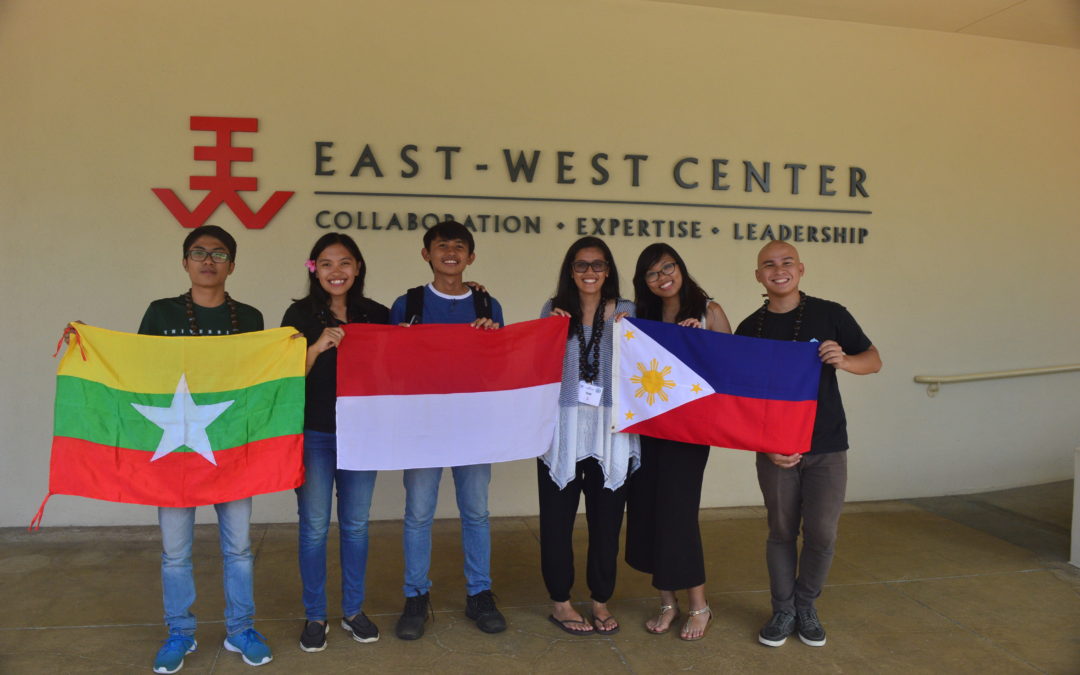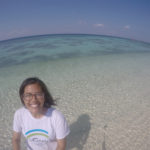Thinking of travelling to the United States while developing your leaderships skills and knowledge in environmental issues? This post outlines my experiences as a fully funded fellow of the Young Southeast Asian Leaders Initiative. The YSEALI program aims to help young leaders in Southeast Asia to develop their professional networks, and to understand the history and environmental issues in the United States.
In the autumn of 2016, I travelled to the United States to join the [Young Southeast Asia Leadership Initiative (YSEALI) Academic Fellowship](http:// https://asean.usmission.gov/yseali/yseali-about/ “About YSEALI ” U.S. Mission to ASEAN”). This program is organised and funded by the United States Government to support leadership development and networking amongst Southeast Asian youth.
I had the privilege to be invited to this program after a long selection process. In the final stages, I was invited to be interviewed at the U.S. Embassy in Jakarta, and then waited for two anxious months until I received a notification that my application has been accepted. I still remember how glad I was when I received this letter, and my excitement as I began preparing for the journey.
As I took my first steps in the United States, everything still felt so unreal. I had never dreamed that I would travel so far, and especially to Hawaii, a beautiful island in the middle of the Pacific Ocean. At the airport, I finally met my cohort from other ASEAN countries. We were still shy at that stage, but as our journey went on, we were able to become closer than I could imagine.
Our journey began by visiting Hawaii’s historical sites, including Pearl Harbor, Lolani Palace and Kuaola Ranch. I was amazed to learn about the historical significance of these places, and how it is tied to the development of Hawaii today. Back in Indonesia, our capital city Jakarta has many historical sites that rival Lolani Palace, but they lack the development and facilities that would help attract more international tourists.
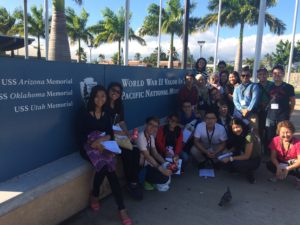
We visited Hawaii’s historical sites, including Pearl Harbour
History was not the only thing we learned in Hawaii, as we also visited current efforts to develop food security in Hawaii. The Whitmore Project is an innovative agribusiness tech park developed by the State of Hawaii to provide new job opportunities and apply innovative agricultural developments. I was impressed by the vision of Senator Donovan Delacruz in envisioning this project, and the work of Monsanto company in developing high-quality products that are helping to revitalise Hawaii’s agriculture sector and achieve food sustainability. It made me realise that we really need to keep innovating in Indonesia to ensure our own food security, especially as our population is growing and agriculture increasingly focusses on non-domestic markets.
Next we participated in classroom activities at the East West Center, and institution located within the University of Hawaii, Manoa that promotes cooperative study, research, and dialogue among the United States, Asia and the Pacific regions. A variety of workshops were held during the first week, including one focussed on business skills. Here, I learned how important it is to “Think Big, Start small, Grow Fast”, and to fail fast while learning to ensure we don’t repeat the same mistakes. I realised the importance of understanding the value that a business provides, and the problem you want to solve. and how to deliver a solution. An example of a business value is improving the lack management of Manta rays in Komodo National Park, as they are the needs of the customer who visited the park.
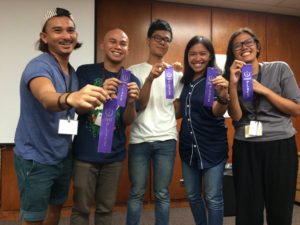
Learning at the East-West Center
Still in Hawaii, we tackled the topic of crowdfunding campaigns for climate action through interactive discussion with our expert guest mentors. Dr. Victoria Keener told us about Climate Action Initiatives in Hawaii, Hiro introduced us to the Emergency Management Center of Hawaii, and Representative Chris Lee led an open discussion on climate issues. One aspect that stuck in my mind was when Dr. Victoria told us, “You can’t be pessimistic in this work” after one of my cohort asked her thoughts about climate change and the planet reaching a high temperature permanently. I was surprised by her response, but somehow understand her optimistic mindset. Hope is important when tackling environmental issues, and motivates us to build meaningful actions. One very surprising thing that I learned was about the nuclear bomb testing in the Marshall Islands of the Pacific Ocean, and how coral reefs that were destroyed in the blasts fifty years ago have now recovered and are now some of the most vibrant reefs on earth.
During excursions to Camp Erdman we developed our teamwork and leadership skills. We had to work together as a team to navigate the ropes course, and during these precious moments our cohort bonded and became a team that understands our individual strengths.
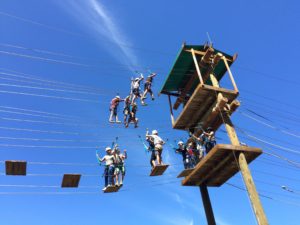
Leadership and teambuilding exercises
Our next destination was Oakland, where I visited Alameda Food Bank which distributes nutritious food to low income communities. We also visited Berkeley University to learn about social labs. This part of our journey really thought me about the diversity of the United States, as each place we visited was very different. I found myself again thinking about food security in Indonesia, where we have a high percentage of poor people, and where the distribution of nutritious food could benefit society.
One of the highlights of our time in California was the opportunity to visit Yosemite National Park and learn about travel conservation. I learned about the role we each can play to help conserve and preserve the environment, and it made me appreciate the steps that the Park has taken to provide facilities, signs and detailed information to help visitors minimise their impact on the wildlife. Simple steps such as never dropping litter. If these steps were implemented in Indonesia’s national parks, it would ensure a better condition for wildlife and the ecosystems.
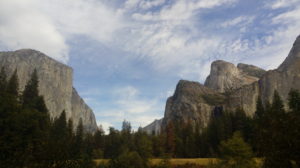
We learned about tourism and conservation at Yosemite National Park
Despite the very cold weather during our time in Yosemite National Park, we were able to develop our leadership skills by participating in several exercises. These exercises taught us not to neglect the past and the present, as these are important aspects to shape the future we are aiming for. These exercises helped me to identify my personal aims for the next five years, and I believe these tools could help other potential leaders in Indonesia to have a significant impact on the condition of our country. I hope to develop a training module based on these experiences that I can share with other young leaders in Indonesia.
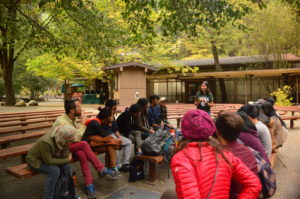
Relaxing after a tiring trek through Yosemite National Park
Our final destination was Washington DC, the capital city of the United States. We visited the Department of State, where we presented our activities, experiences, and feedback.Even though I am now back home in Indonesia, my YSEALI journey has not ended. I am currently working with my YSEALI cohort to develop a program to educate young women about the importance of protecting our environment, and developing leadership training and activities based on my experiences to share during the next MantaWatch Internship Program.
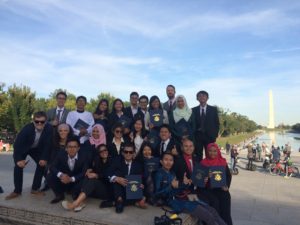
Our final destination, Washington D.C.

